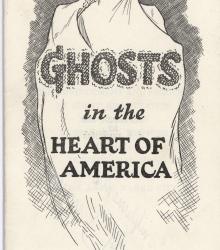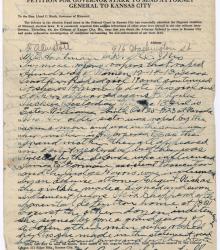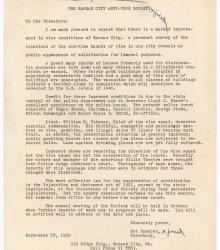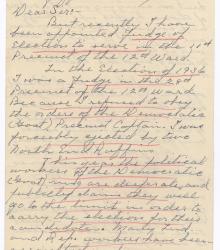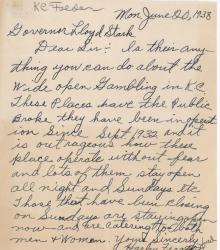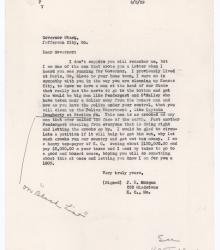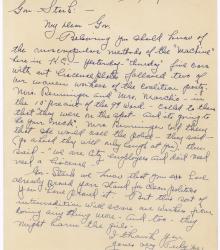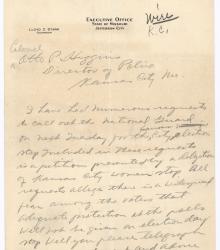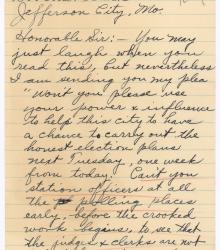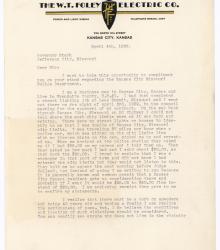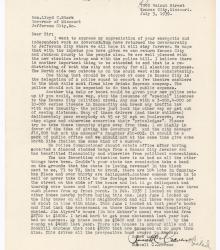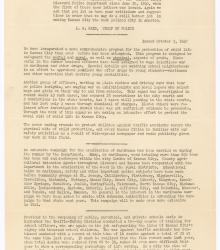Pamphlet describing how Pendergast, "King of Kansas City, Emperor of Missouri," and his machine gained power in Kansas City and its role in statewide election fraud.
Kansas City Police Department
Letter from M. E. Hartman to Governor Lloyd C. Stark, unenforce rape and other crimes occurring in Kansas City.
An update to the Kansas City Anti-Vice Society about improvements in Kansas City vice conditions, from Nat Spencer, secretary.
Letter from Charles E. Ellis, one of Kansas City's 12th Ward election judges, to Governor Lloyd C. Stark, concerned about threatened violence against poll workers who don't obey the Pendergast machine in upcoming elections, and requesting military protection due to distrust in the police.
Letter from Harley Ferguson to Governor Lloyd C. Stark, describing the open gambling in Kansas City during the 1930s and hoping to shut it down. He expresses particular concern that gambling establishments are open on Sundays and open to women, and says they "operate without fear."
Letter from J. R. Morgan to Governor Lloyd C. Stark regarding Stark's work cleaning up Kansas City and its police department. He describes Captain Dougherty at Station #4 as "crooked as any man that ever walked the face of the earth."
Letter from Bessie Peppard, to Governor Lloyd C. Stark, describing local women in her political organization being threatened by city employees.
Letter dictated for a telegram from Governor Lloyd C. Stark to Colonel Otto P. Higgins, Kansas City Director of Police, regarding the requests he has received for National Guard protection for the upcoming election, and asking for his opinion of the matter.
Letter signed "A Kansas Citian" to Governor Lloyd C. Stark, requesting assistance in ensuring honest elections in Kansas City by protecting voters, judges, and clerks.
Letter from W. T. Foley to Governor Lloyd Stark describing an encounter with the Kansas City, Missouri, Police Department in which he was arrested at the city limit for speeding and had money taken by the officers.
Letter from Russell C. Cravens to Governor Lloyd C. Stark, thanking him for his work in cleaning up elections and the Kansas City police department.
Kansas City Police Department newsletter from October 1940, sent to "leading Kansas Citians." The newsletter describes programs to protect local children from traffic and "exhibitionists and moral lepers," to eliminate marijuana growing within the city limits, and police training.
